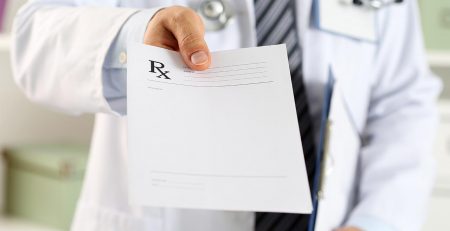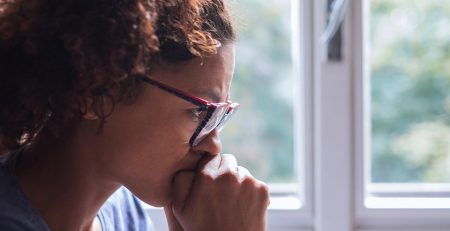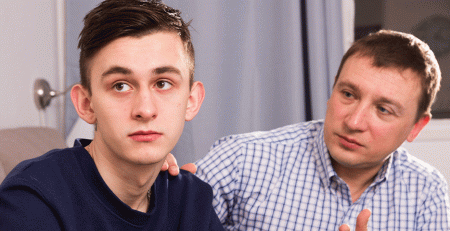An overdose occurs when a person takes too much of a drug, whether it is over the counter, prescription, or illegal. The amount of overdose depends on the drug and varies from person to person, depending on their sensitivity to the drug, any preexisting health conditions, and other factors. If you have experienced an overdose and do not know what to do next, follow these tips on how to recover from an overdose and pick up the pieces.
What Happens After an Overdose?
When not fatal, drug overdoses can have long-term health effects, including liver, kidney, and even brain damage. Damage to the heart and lungs may also occur, especially in cases when the person has experienced a heart attack or stroke. What’s more, people who survive drug overdoses are more likely to develop emotional and mental health problems following the trauma, which can further contribute to substance abuse.
After an overdose, an individual might continue to receive medical treatment until they are deemed healthy enough to be released from a hospital. In cases when the person did not receive medical treatment and survived, overdose recovery may be longer lasting and more difficult.
Additionally, the individual may be coping with various physical and psychological symptoms after an overdose, including:
- Abscesses
- Brain injury and damage
- Cancer
- Cardiovascular disease
- Dermatologic issues
- Heart lining infections
- Liver and kidney problems
- Malnutrition
- Mental health issues
- Nasal septum perforation
- Respiratory problems
- Sexual dysfunction
- Tuberculosis (TB)
- Tooth decay
- Withdrawal symptoms
Long-term drug use may also contribute to severe after-overdose side effects. Additionally, if the individual has a drug or alcohol addiction, they may be placed in a residential treatment program either willingly or via legal counsel. Knowing what to expect after an overdose is important not only for people with substance use problems to understand but also for anyone who has medications in the house that could potentially lead to overdose.
Questions about our Programs?
Our admissions coordinators are available 24/7 to answer any questions you may have as you consider whether treatment at Banyan is right for you or your loved one.
Tips on How to Recover From an Overdose
So how do you pick up the pieces after you have overdosed on drugs? Considering the ongoing opioid epidemic and rise in drug overdose deaths in recent years, our BHOPB detox center wanted to offer some tips for recovery after an overdose and how you can get back on your feet.
Address Medical Needs Immediately
After an overdose, the first step is to treat urgent medical problems. Individuals who have overdosed may exhibit abnormal vital signs and memory loss and may experience cardiac, respiratory, or gastrointestinal problems that require ongoing medical care. If the overdose was intentional, the individual may also undergo a mental health evaluation and receive psychiatric care as needed.
Seek Out Addiction Treatment
Although overdoses can occur accidentally, particularly among children, adults with cognitive impairments, and senior citizens, many overdoses occur in people who struggle with drug abuse. If you are battling an addiction, the best way to recover from and prevent an overdose is to get professional help.
If you have overdosed and need medical support, such as a detox program to quit safely, the best option will be residential addiction treatment. Residential programs require that clients live at the facility for the duration of their programming so they can recover without the temptations and distractions they have at home that may make recovery more difficult.
Residential care is also an intensive form of support that offers physical and psychological modalities ranging from detox to cognitive behavioral therapy (CBT). This is a well-rounded level of care that ensures clients receive 24-hour support during the most crucial period of their recovery.
Tell Your Loved Ones
Another crucial step in drug overdose recovery is to share your experience with someone who will keep you accountable. If you have an addiction and you have overdosed, it is safe to say that you’re struggling with control over the substance and need extra support for finding or staying in treatment.
Tell someone who will hold you accountable and help you stick with your recovery plan. They could also help take care of your family or home as you get help. Having a strong support system can make a world of difference.
Take Alternative Medications
As a more preventative measure, if you are taking any medications that are more likely to cause an overdose – such as opioids – consider speaking to your doctor about taking an alternative medication. These may include both alternative substances or therapy techniques, including over-the-counter pain relievers, exercise therapy, cognitive behavioral therapy, acupuncture, and massage therapy.
However, if you have experienced an overdose before, particularly on opioids or other similar prescription medications, you are unlikely to be prescribed a similar medication. With this said, be honest about your medical history at your doctor’s appointments.
Keep Prescriptions Out of Reach
This tip is mostly for preventing overdose in others who should not have access to prescription medications, such as young children and adults with mental impairments. Accidental overdoses among these demographics are common and can be fatal, so make sure you are storing your medications in out-of-reach places to prevent overdose and other problems.
Take Care of Your Health
While we recommend you speak to your doctor about following a specific diet or exercise regimen, we suggest that you continue to take care of your health after an overdose by exercising at least three times a week and eating a good balance of fruits, vegetables, and proteins. Again, speak to your doctor about foods that may work best for your health. Living a healthier lifestyle can support physical and psychological recovery.
Join a Support Group
Although we have already mentioned getting professional substance abuse treatment, another way to recover from and avoid an overdose is by joining a support group. This can include a 12-step program or a program like our alumni recovery program. These programs not only pair you with a sponsor that can keep you accountable, but they also connect you with others in the recovery community you can learn from and bond with.
Get a Free Insurance Verification Today!
"*" indicates required fields
Get Help for Addiction Today
Overdose is common in people who struggle with substance abuse, and the best preventative measure is professional help. If you or someone you care about needs help with addiction recovery, call Behavioral Health of the Palm Beaches today at 561-220-3981 to learn more about our addiction and mental health care in South Florida.
Related Reading:













